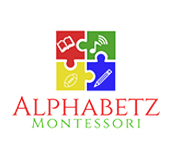Introduction: The Fusion of Montessori and STEM
In an era where technology and innovation drive the global economy, the fusion of Montessori education and STEM (Science, Technology, Engineering, Mathematics) has never been more critical. Montessori education, known for its emphasis on independence, hands-on learning, and self-directed activity, is increasingly incorporating STEM activities into its curriculum. This integration is preparing children not just for any future, but for one that is heavily reliant on STEM skills. As we delve deeper, let’s explore how this blend is shaping the innovators of tomorrow.
The Montessori Approach to Learning
The Montessori method, developed by Dr. Maria Montessori, is centered around the idea that children learn best in an environment that supports and respects their individual development. This approach emphasizes:
– **Independence:** Children are encouraged to make choices and work on tasks with minimal adult intervention.
– **Hands-on Learning:** Learning through doing, using tactile materials to understand concepts.
– **Mixed-age Classrooms:** Older students mentor younger ones, fostering a community of learning.
In such an environment, creativity, problem-solving, and critical thinking skills flourish, laying a solid foundation for STEM learning.
Integrating STEM into Montessori Education
Integrating STEM into Montessori classrooms involves incorporating activities that are exploratory and hands-on, aligning with the Montessori philosophy. Examples include:
– **Coding with Tangible Blocks:** Young children can learn basic coding concepts through physical blocks, making abstract concepts tangible.
– **Practical Science Experiments:** Simple experiments that allow children to observe and question scientific phenomena firsthand.
Starting STEM education early, in a manner that aligns with Montessori principles, cultivates a natural curiosity and love for learning about the world, which is essential for success in STEM fields.
Preparing for the Future: STEM Careers
The demand for skilled professionals in STEM fields is projected to grow exponentially, with the U.S. Bureau of Labor Statistics highlighting a brighter job outlook in these areas compared to non-STEM fields. Montessori education, with its focus on STEM, prepares children for these future careers by:
– **Fostering a Problem-solving Mindset:** Encouraging children to think critically and solve problems creatively.
– **Building a Strong Foundation in STEM:** Early exposure to STEM subjects builds confidence and competence in these areas.
Success stories abound of individuals who attended Montessori schools and went on to excel in STEM careers, underscoring the effectiveness of this educational approach.
Beyond the Classroom: The Lifelong Benefits of Montessori and STEM Education
The benefits of Montessori and STEM education extend far beyond academic achievement. They include the development of soft skills such as:
– **Teamwork:** Working collaboratively in a mixed-age classroom.
– **Communication:** Learning to express ideas and solutions clearly.
– **Adaptability:** Being open to exploring new concepts and approaches.
Parental and community involvement further reinforces STEM learning outside the classroom, creating a supportive ecosystem for children to thrive in.
Nurturing Tomorrow’s Innovators
As we look to the future, the importance of innovative education models like Montessori with STEM integration cannot be overstated. These models are instrumental in shaping a workforce that is not only skilled but also adaptable, creative, and ready to tackle the challenges of tomorrow. It is incumbent upon educators and parents alike to support and adopt such educational approaches, ensuring that we nurture the innovators who will drive the future.
In conclusion, the combination of Montessori and STEM is more than just an educational trend; it’s a necessary evolution in how we prepare our children for the future. By fostering an environment that values independence, hands-on learning, and a deep engagement with STEM, we are shaping a generation of future innovators who will no doubt make significant contributions to our world.

